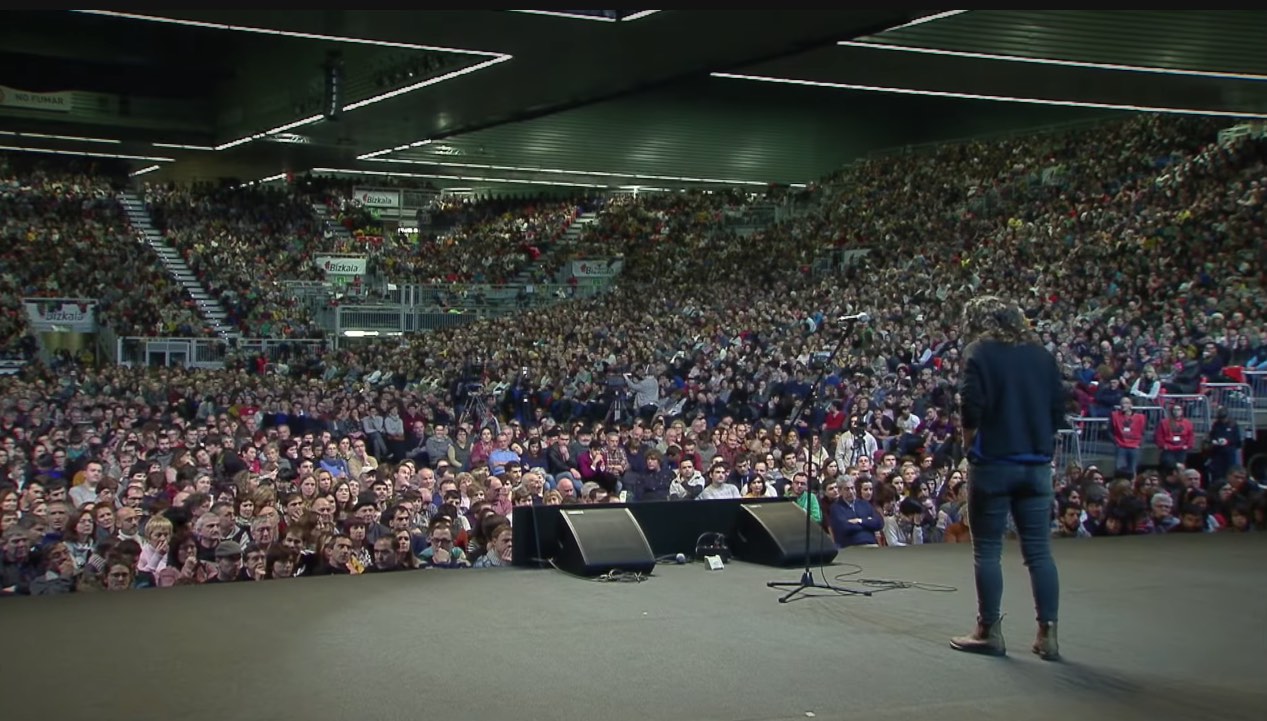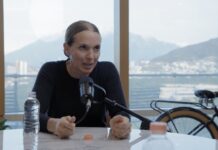This article was translated by John R. Bopp
For our regular readers, it will come as no surprise that one of the things we’re most concerned about is sending out a “better image” of the Basques and our nation to the world.
That’s why we just had to write about this video about bertsolarismo that was produced right here at home. We’ve already talked about this topic when it’s been brought up in media from around the world. Some of them are especially dear to us, like the one by Amanda Gonser. But on this occasion, we’re talking about a home-grown product, and it’s filled us with joy.
As a people, we have a great treasure: we’re the bearers of a unique and extraordinary culture. Yes, it’s true, they all are, and no culture is more important or has more rights than any other. We’ve repeated that a thousand times and we’re not about to fall into the mistakes we’ve criticized so vociferously.
But when it comes to us Basques and our culture, there’s a special element that does make ours stand out: its ability to survive, its resilience, its stubbornness, in order to, as a community, preserve its roots, without renouncing its new homeland, wherever that may be.
A century and a half ago, when Europe and the world were at the start of one of the most complete transformations ever undergone, the idea that nations and cultures were living beings subject to “natural selection” came up. This “social darwinism” understood that some cultures needed to die off so that others, which were fitter, could take their place.
One of those that was doomed to disappear was the Basque culture. We were told this from a place of “caring resignation,” as in the case of Élisée Reclus, who we’ve blogged about quite a bit. Others, such as Friedrich Engels, were of a much harsher opinion:
There is no country in Europe which does not have in some corner or other one or several ruined fragments of peoples, the remnant of a former population that was suppressed and held in bondage by the nation which later became the main vehicle of historical development. These relics of a nation mercilessly trampled under foot in the course of history, as Hegel says, these residual fragments of peoples always become fanatical standard-bearers of counter-revolution and remain so until their complete extirpation or loss of their national character, just as their whole existence in general is itself a protest against a great historical revolution.
In Scotland, the Gaelics, supporting the Stewards from 1640 to 1745.
In France, the Bretons, supporting the Bourbons from 1792 to 1800.
In Spain, the Basques, the main supporters of Don Carlos.
The next world world will wipe off the face of the earth not only reactionary classes and dynasties, but also whole reactionary peoples. That, too, is progress.
Fortunately, they were all wrong, at least about the Basques. We’re neither a “ruin of a people” nor have we disappeared. Our culture is alive. Our language has never been spoken by so many people as now. And in this complex, multipolar, changing world, full of opportunities and tricks, the Basques and their culture still have a place.
One of our obligations as a society is to guarantee that the world knows about us, and has the best, most correct vision of who we are. We must fight so that our reality is known and respected. This is a key element for our continued existence. We have to make known who we are, making up for the distorted image of us others have spent so much time transmitting.
Yes, we must have our own voice and use it, loud, clear, and often, to make ourselves heard, to make ourselves known. And that can only be achieved with an ambitious policy of spreading, with a clear commitment and with this idea: it is essential that it be known who we are.
That’s why we’ve decided to include this initiative of the Etxepare Basque Institute, Mintzola Taller Oral, and Caja Laboral in our blog.
Because thinking globally, fighting against that attitude we Basque often have of working inwards, of getting lost in ourselves, we believe is key. We need to broadcast, efficiently, with the tools that help make who we really are known is what we need to do now.
Let’s help the world get to know us; let’s create the tools to allow the world to discover our essence, let’s think and act with a global reach and goal.
This video about bertsolarismo is, for us, a magnificent example of what that right road is.
We’d like to propose something to the promoters of this idea. Could an “abstract” of four to five minutes also be made? In this world where everyone’s always in a rush, a short summary would be very useful and, we believe, very effective.
Note: the video is filmed in English and subtitled in Basque, Spanish and French (the language can be chosen by clicking on the settings icon at the bottom right).
Instituto Etxepare – 4/12/2018 – Euskadi
DOCUMENTARY ABOUT BERTSOLARITZA
What is bertsolaritza? is a short documentary that sets out to answer the question in the title. The film was created in order to introduce the world to the practice of bertsolaritza. Made possible through a collaboration between Etxepare Basque Institute, Mintzola Oral Workshop and Laboral Bank, What is bertsolaritza? will premiere today in Tabakalera’s Z hall at 6.30 p.m.
(Follow) (Basque) (Castellano)
Documentary Presentation«What is bertsolaritza?»
Last Updated on Dec 20, 2020 by About Basque Country





